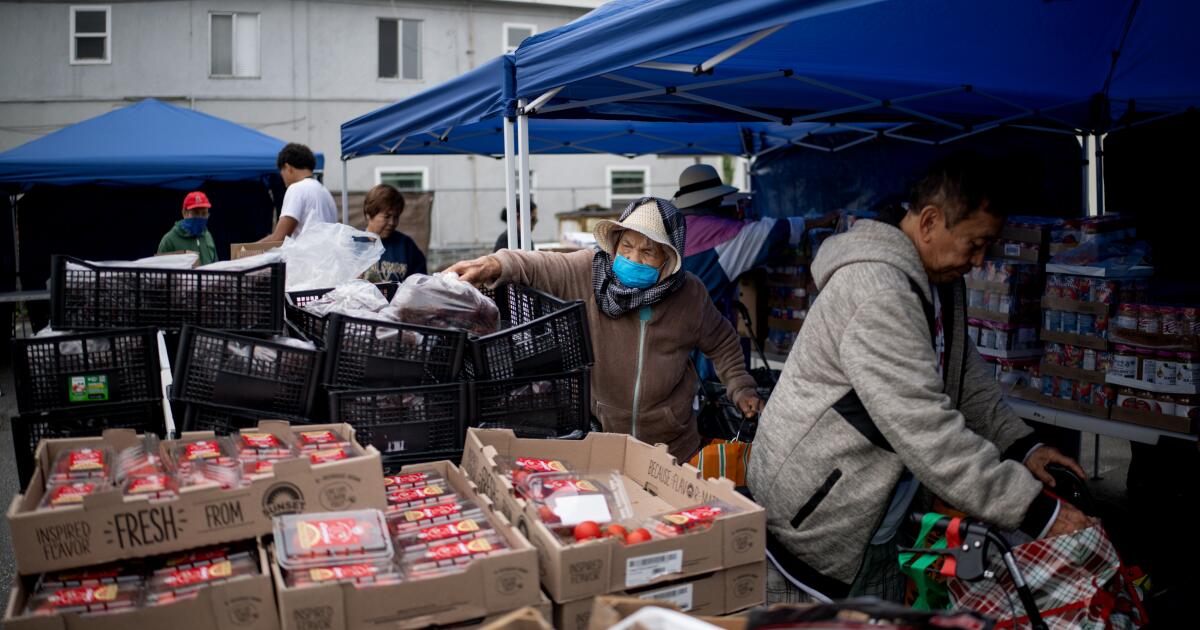A significant lapse in Supplemental Nutrition Assistance Program (SNAP) benefits is impacting millions of low-income Americans, including approximately 5.5 million Californians, as the federal government shutdown continues. On Friday, two federal judges ordered the U.S. Department of Agriculture (USDA) to utilize billions of dollars in contingency funds to provide essential food assistance. However, the agency has until Monday to determine how to implement this directive, leaving many families uncertain about the timing and nature of relief.
The ongoing government shutdown has persisted for nearly a month, with no clear resolution in sight. While the court rulings represent a victory for SNAP recipients, state officials have cautioned that not all will receive uninterrupted benefits. The urgency of the situation prompted local food banks to act quickly to address the increasing demand for food assistance.
On Saturday, the Los Angeles Regional Food Bank organized a drive-through food distribution event at the Kia Forum in Inglewood. Thousands of individuals lined up to receive food, with volunteers distributing containers capable of providing up to 40 meals each. The containers included a variety of items such as whole grains, fresh produce, tortillas, canned tuna, yogurt, and frozen chicken. This community effort highlights the growing need for food assistance during a time of uncertainty.
The judicial decision came in response to arguments from the Trump administration, which contended that the $5 billion in contingency funds could not be accessed while the government was shut down. However, the judges ruled against this position, emphasizing the legal obligation to support nearly 42 million SNAP recipients—approximately one in eight Americans. California Attorney General Rob Bonta criticized the shutdown, attributing the disruption of SNAP benefits to President Trump and asserting that such interruptions had never occurred during past shutdowns.
Bonta stated, “That was avoidable. Trump created this problem,” highlighting the historical precedent for maintaining SNAP benefits during government closures. In contrast, the Trump administration has placed responsibility on Congressional Democrats for delaying spending measures that would reopen the government and restore funding for SNAP.
As the situation remains fluid, U.S. Treasury Secretary Scott Bessent mentioned on CNN that the administration is awaiting clarification from the courts regarding the implementation of the funds, suggesting a possibility for assistance to be available by Wednesday. However, the immediate needs of SNAP recipients cannot wait for bureaucratic processes.
Community leaders and local nonprofits are stepping up to bridge the gap left by the lapse in federal assistance. Various initiatives, including free grocery pop-up markets, are being organized to support those in need. Opportunities for volunteering in these efforts have been compiled by local media, allowing community members to engage in food distribution, grocery packing, and meal preparation.
As the federal government shutdown continues, the plight of low-income Americans remains a pressing concern, with food banks and community organizations playing a critical role in providing immediate relief. The situation underscores the importance of accessible food assistance programs and the need for a prompt resolution to the ongoing shutdown.







